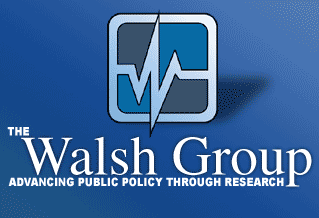|
The Walsh Group (TWG) has just completed the
third year of a research project evaluating
the effectiveness of random drug testing (RDT)
to reduce drug use by high school students.
Three public high schools in New Jersey, with a
total population of over six thousand
students, are participating in the research
(Hunterdon Central Regional High School, North
Hunterdon High School, and Voorhees High
School). The study is funded by the U.S.
Department of Education.
The
schools’ random testing policies are
designed to be therapeutic rather than
punitive. The regional boards of
education have created a policy where
participation in school-sponsored athletics or
competitive extracurricular activities is
contingent on participation in the random
testing program. Students can also volunteer
to participate in the program, which runs
throughout the year.

If a student fails a random drug test, the
student’s parents are notified, meetings
with the school student assistance counselor
are arranged, and the student may not
participate in extracurricular activities
until he/she has successfully completed
required drug education and counseling
sessions and passed a follow-up drug test.
Students do not miss any classes, and may
resume extracurricular activities when the
prerequisites are met. The goal is to
deter use and identify
|
students who are using
drugs so they can get the necessary help.
All test results are confidential and do not
appear on the student's permanent record.
The RDT programs
have run smoothly at all three participating
schools and are now an accepted part of the
normal course of business. There
have been no problems or complaints and there
has been no evidence that students have
stopped participating in athletics or
extracurricular activities in order to avoid
being in the RDT pool.
The
preliminary results from this complicated
study are quite promising. We have found
positive correlations between being in the RDT
pool and lower rates of drug use; however, we
cannot impute causality at this time.
More data is needed.
The
study’s preliminary results have also
brought some other interesting things to
light. There is strong evidence that
student drug use patterns change over the
course of the school year, and that the
greatest rates of drug-use increases are among
the freshman and sophomore classes as they
assimilate into the high school culture.
Both of these
patterns have important implications for the
design and implementation of RDT and other
prevention programs. The Department of
Education has now extended the study for a
fourth year so that TWG can gather more data
on the impact of RDT programs on student drug
use as well as further investigate seasonal
variations in student drug use and high school
socialization.
|

